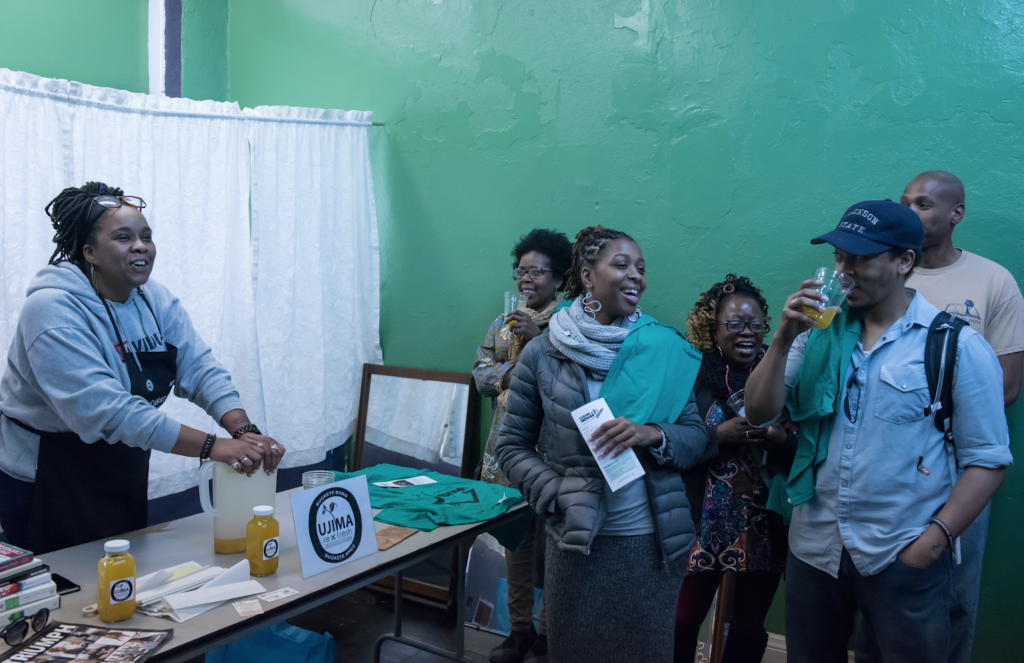If you’re a grassroots group that’s looking to get good done in your community, you might be wondering if your group needs to formally incorporate as a nonprofit organization before you can fundraise. Friends, we are here to tell you that the answer is a loud-and-proud: NOPE!
While incorporating can certainly have its advantages (including enhancing credibility and limiting liability), community groups can still raise the resources they need without becoming bona fide 501(c)3s.
In fact, we think one of the all-around best methods of fundraising has nothing to do with getting a nonprofit designation. AND, you can still gather tax-deductible donations. So, how to fundraise if you’re not a 501(c)3 nonprofit? We’d like you to meet the dynamic duo of crowdfunding and fiscal sponsorship.

What is crowdfunding?
You’re probably familiar with crowdfunding: the pooling of small online donations to support a cause or project. Anyone who has an idea for creating positive change in their neighborhood can use ioby’s platform to crowdfund for it—as well as to seek in-kind donations and find volunteers. (We also offer lots of training and other resources!) We call this whole kit and caboodle “crowd-resourcing.”

Why does crowdfunding work for unincorporated groups?
- Citizen leadership is effective leadership. Residents know their neighborhoods better than anyone, so it’s no surprise citizen leadership has proven to be a super effective method of diagnosing and treating hyperlocal problems. As we wrote in Planetizen last year, “Civic crowdfunding [another word for what we do] allows those closest to the ground, residents themselves, to quickly identify, plan, gather resources for, and implement a project that addresses an immediate need.”
- Local donors are committed donors. Generally, when a group is awarded a grant from a foundation or other entity to fund a community project, the money they receive comes from an external source in one lump. When a group crowdfunds from within its own neighborhood, on the other hand, everyone who makes a donation gains a sense of investment in and agency over the project. When people feel they have a stake in an endeavor—be it of a financial, advisory, or sweat equity nature—they are likely to stay committed to helping it succeed. There’s strength in those numbers!
- A flexible group is a responsive group. When your group gets its support from the surrounding community, you stay close to the action and retain the ability to shift in response to local needs. You can keep your group small and unincorporated, you can decide to grow and apply for 501(c)3 status, or you can even disband after accomplishing your initiating project—whatever best fits the circumstances.

What is fiscal sponsorship?
Fiscal sponsorship is an arrangement in which one entity agrees to accept and manage funds for another. Within the nonprofit sector, fiscal sponsorship usually occurs when an individual or group wishes to receive tax-exempt contributions for charitable or community-focused activities without building a full organizational infrastructure or receiving formal 501(c)3 nonprofit status.
ioby is proud to offer fiscal sponsorship services nationwide, to any community project on our platform that requests it. Like most fiscal sponsors, we keep a small percentage of what you raise to help us cover the administrative costs of managing the funds. (We’ve kept our fee at five percent—one of the lowest around!)
Having a fiscal sponsor, like ioby, can help you fundraise if you’re not a 501(c)3 nonprofit. Better still, your donations can be tax deductible!
How does fiscal sponsorship help unincorporated groups?
- Simplify your taxes. If your unincorporated group has a fiscal sponsor, it can accept donations without owing income tax on them. The fiscal sponsor keeps all the money going to your project separate from group members’ personal finances, so come tax time, there’s no confusion about that extra money in your bank account.
- Offer your donors a break. The nice flipside of the above tax coin is that fiscal sponsorship allows your donors to deduct any gifts they give you on their tax returns. This is a great perk to offer, and also boosts your trustworthiness.
- Get that grant anyway! While we think crowdfunding can be a great alternative to applying for grant funding, being awarded a grant is of course still a wonderful thing! If you crowdfund on ioby and receive a grant while your campaign is active, we can accept it on your behalf and apply it toward your total crowdfunding goal – we can even help you leverage it as match funding to drive additional donations! In addition, if your group doesn’t have any pre-existing relationships with funders, you might appear more attractive to them if you have a fiscal sponsorship arrangement with a reputable organization.
If these high points have whet your appetite for finding out more about how crowdfunding and fiscal sponsorship can help you get a local project off the ground, check out these other great sources of info:
- Read our co-founder Erin Barnes on her experiences with incorporating, the ups and downs of different funding sources, and why ioby continues to ‘crowdfund’ a lot of its own revenue in this interview with Shareable.
- ioby’s Katie Lorah explains a few reasons why crowdfunding your project can be a better choice than applying for a grant—whether you’re an established 501(c)(3) or not—on Strong Towns.
- The video “What You Need to Know About Fiscal Sponsorships,” posted by Foundation Center’s GrantSpace, gives a more in-depth look at how this relationship works.
- NEO Law Group’s Nonprofit Law Blog presents some classic fiscal sponsor flubs in their post “Fiscal Sponsorship: Six Ways to Do It Wrong.”
